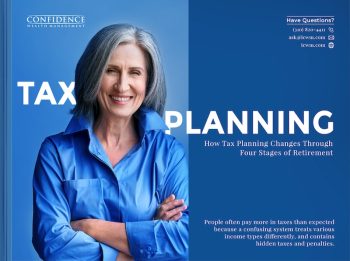Just like any other decision you make for your business, developing a succession plan requires learning about your options so you can try and choose what’s best.
But unlike most other decisions you’ve made for your business, succession planning can be emotional and presents you with a lot of confusing options.
- Should you sell your business or give it away?
- Do you want to do so now or later?
- (And maybe most importantly) Who should take your business over?
These are not easy questions to answer because they are deciding the future of your business. Take stock of your situation and your options before you make the biggest decision you’ve ever made for your business.
Here are the different options for a business’s succession plan.
Sell Your Business
The thing to consider if you want to sell your business outright is when to do it.
You could sell your business and use the proceeds to maintain your lifestyle, pay estate taxes, or handle other expenses. As long as the price is at least equal to the full fair market value of the business, the sale will not be subject to gift taxes.
If you do choose to sell it soon and live off the proceeds, it may result in capital gains tax.
Transfer Your Business with a Buy-Sell Agreement
A buy-sell is a legally binding contract that establishes when, to whom, and at what price you can sell your interest in a business. A typical buy-sell allows the business itself or any co-owners the opportunity to purchase your interest in the business at a predetermined price.
This can help avoid future adverse consequences, such as disruption of operations, entity dissolution, or business liquidation that might result in the event of your sudden incapacity or passing.
A buy-sell can also minimize the possibility that the business will fall into the hands of outsiders.
The ability to fix the purchase price as the taxable value of your business interest makes a buy-sell agreement especially useful in estate planning.
This is because agreeing to a purchase price can minimize the possibility of unfair treatment to your heirs. And the IRS’ acceptance of this price as the taxable value can help minimize estate taxes.
Because funding for a buy-sell is typically arranged when the buy-sell is executed, you’re able to ensure that funds will be available when needed, providing your estate with liquidity that may be needed for expenses and taxes.
Private Annuity
This option allows you to transfer your ownership interest in the business to family members or another party (the buyer). The buyer in turn makes a promise to make periodic payments to you for the rest of your life (a single-life annuity) or your life and the life of a second person (a joint and survivor annuity).
Because a private annuity is a sale and not a gift, it allows you to remove assets from your estate without incurring gift or estate taxes.
Until 2006, exchanging property for an unsecured private annuity allowed you to spread out any gain realized, deferring capital gains tax. However, IRS regulations proposed that year have effectively eliminated this benefit for most exchanges.
If you’re considering a private annuity, be sure to talk to a tax professional.
Self-Canceling Installment Note
A self-canceling installment note (SCIN) allows you to transfer your interest in the business to a buyer in exchange for a promissory note. The buyer must make a series of payments to you under a provision that states that when you pass the remaining payments will be canceled.
Like private annuities, SCINs provide for a lifetime income stream and they avoid gift and estate taxes. But unlike private annuities, SCINs give you a security interest in the transferred business.
Gift Your Business
Many business owners prefer to have their children inherit the result of their years of hard work, struggle, and success.
While you can give your business away in your will, transferring it in your lifetime brings personal and tax benefits.
By gifting your business over time, you can hand over the reins gradually as your children become better able to control and manage the business on their own, and you can minimize gift and estate taxes.
This works because:
- It transfers the value of any future appreciation in the business out of your estate to your heirs. This can be especially valuable if you’re expecting your business to grow.
- Gifts of $16,000 (in 2022, $15,000 in 2021) per recipient are tax-free under the annual gift tax exclusion.
- Aggregate gifts up to $12,060,000 (in 2022, $11,700,000 in 2021) are tax-free under your lifetime exclusion.
- Partial interest gifts, as with GRATs, GRUTs, and FLPs, may be valued at a discount for lack of marketability or restrictions on transferability.
Gifting Your Business Using Trusts
You can make gifts outright or use a trust. Trusts come with several options that make them potentially
more beneficial.
You can even structure a trust so that you keep control of the business for as long as you want. This can be accomplished either with a revocable trust, which will bypass probate and allow you to change your mind and end the trust, or an irrevocable trust, such as a Grantor Retained Annuity Trust (GRAT) or a Grantor Retained Unitrust (GRUT) that can provide you with income for a specified period and move your business out of your estate at
a discount.
When deciding whether to go with a trust and how to structure it will depend on your unique situation. It may make sense to discuss it further with a financial professional.
Gift Your Business Using a Family Limited Partnership
The last option in this list is to transfer your business interest using another entity, such as a Family Limited Partnership (FLP).
An FLP is a limited partnership formed to manage and control a family business. You (and your spouse) can be the general partners, retaining control of the business itself and receiving income from the business, while your children can be limited partners.
By transferring the business to an FLP, you may be able to use valuation discounts and substantially reduce the value of the business for tax purposes by making annual gifts to the limited partners.
Conclusion
You’ve spent your life building your business by making the hard decisions that led to its success. Deciding on who should succeed you, and how to manage that succession, is the last and most important decision you’ll make for your business’s future.
As experienced financial professionals, we help clients like you figure out the best retirement plan for their situation, so that when they’re ready they can retire gracefully with peace of mind.
Please connect with us and let us help you plan for your dream retirement. We would be delighted to go on the journey with you.








